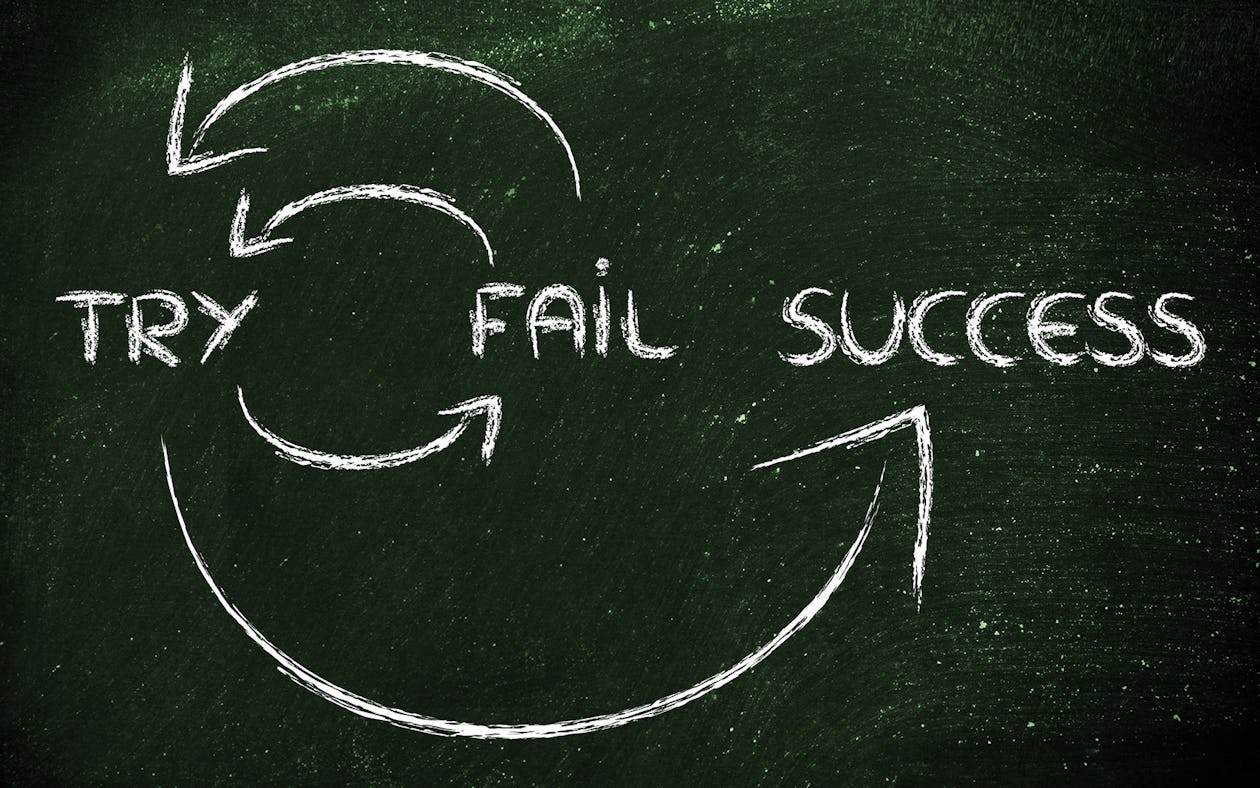29 Years Ago¦
The sun beat down on my summer-browned arms, the red brim of my baseball cap blocking the rays glinting off the metal bat as I lined up for my very first at bat. I carefully adjusted my grip and tossed my pigtails away from my face as I stared down the pitcher.
Inside my head I thought, “Ready, set, go!” and swung away, barely holding onto the bat as it smashed into the ball. Stunned, I paused for a moment before taking off toward first base, my little legs pumping as hard and fast as I could move them. I knew it would be close – being safe wasn’t guaranteed.
A few feet from first, I tripped, sprawling in slow motion toward the base, only to hear the umpire yell, “Out!” as I looked up from the ground, covered in dirt, knees scraped, filled with disappointment.
I was five years old. The only girl on my entire T-ball league – not just the team, the entire league. And I knew I had failed.
I don’t remember much else about that summer – mostly post-game Gobstoppers and Hi-C, and that my coach’s name was “Rick,” which I only know because it rhymes with “brick.”
But I do vividly remember that first failed at bat. I remember my coaches running out to check on me before walking me back to the dugout. I remember crying.
I also remember going back the next week and trying again.
Today¦
I recently turned 34, making it the ideal time for life reflection – what’s gone well over the last year? What’s gone poorly? Where am I in relation to my life goals? What needs to change to get or stay on track?
These are big questions, and there are always some unwelcome realizations that come with deep introspection. But I’m happy to report that this year was the first year in the last six years that I’ve felt really on track – like I’m where I’m supposed to be and heading in the direction I’m supposed to be heading.
But it’s not because life is awesome and I’m the best at everything. I like to think that’s true, but no, I’ve spent the last six years failing.
And failing repeatedly. Sometimes spectacularly.
I wouldn’t trade a single one of my failures for success, because it’s through my failures that I learned more about who I am. Failure tested my resilience and wherewithal. I started asking questions about what I really want out of life. And whether other people’s opinions matter. (P.S., They don’t).
To be clear, my failures have been big and messy, including:
â Quitting a job I really wanted to keep, but wasn’t in a mental headspace to stick with
â Depression
â Loss of motivation that resulted in poor eating habits, workout habits and a 20-pound weight gain
â Foreclosure
â Periodic loss of clients or trouble landing new clients
â Moving back in with my parents as a 30-year-old
â Complete confusion and lack of direction about career and life
â And too many tiny, daily failures to even count
I don’t think it would be a reach for most people on the outside looking in to call my life a bit of a shit show. Trust me, I get it. Heck, I lived it.
But I’m not even remotely ashamed of any of these disappointments, because while I spent six years failing with flying colors, I also spent those six years:
â Finishing my master’s degree
â Changing careers and working from home as a freelance writer
â Ignoring others’ opinions about my life and charting my own path
â Finding new, different, lifelong motivation for exercise and nutrition that isn’t grounded in the fitness industry’s obsession with appearance
â Firing clients that didn’t align with my goals, and pursuing those that do (Hey, Onnit!)
â Signing a book deal
â Learning to trust my instincts and keep on trying – maintaining hope and faith with a level of bold audacity that has paid off in ways I never could have imagined
Accepting Failures Requires Checking Your Ego at the Door
What’s a damn shame in our culture is that perfection and ego so often captain the proverbial ship, preventing people from accepting fault. Everyone makes mistakes, experiences failure; but instead of owning up to missteps and seeking ways to try, try again, we play the blame game or explain away all the reasons why that failure wasn’t really our fault or within our control.
And you know what? Sometimes that’s true. There are, of course, some instances where you have no control over circumstances or outcomes. But most of the time? Uh-uh. If you’re standing in the middle of a life swamp, you probably made a decision or two along the way that helped land you there.
When you finally come to the awful realization that sometimes the only thing you’re a victim of is your own decisions, you’ll be flooded, initially, with a wave of sorrow and humility, followed by the most gratifying feeling of empowerment you can possibly experience. Because, damn it, if you got yourself into this awful mess, you can start figuring out how to get yourself out of it, too.
The Importance of Small Failures
Failing is one of the best ways to learn how to win. There are about a million quotes from people far more successful and smarter than me pointing to the critical importance of failing, and failing again. One of my favorite is from J.M. Barrie: “We are all failures – at least the best of us are.” The people who achieve the most, in whatever way they choose to define achievement, are those who take risks and fail along the way.
The trouble, though, is the fear of failure. It’s scary to want something deeply, to try something new, and to risk not experiencing the outcome you hoped for. You risk disappointment and embarrassment. You set yourself up to experience hurt. You make yourself vulnerable to feelings that aren’t always comfortable.
This is why small failures are so important – they teach you that losing doesn’t make you a loser, that failing doesn’t make you a failure.
The lessons that come from accepting small failures with grace and tenacity are what help you build the courage to take big risks. I firmly believe you should pat yourself on the back for every small failure you experience – assuming you use it as a building block to become a stronger person, rather than a crutch or a burden of guilt that prevents you from continuing on. These small failures don’t turn you into a “bad person,” they can build you into the fully flawed, fully incredible person you’re meant to become.
Fitness, Sports and Failing
I’m sure it’s hard to believe, but my first at bat as a five-year-old wasn’t my only failure in sport.
Actually I’m sure that’s not hard to believe at all.
Anyone who’s ever competed in an event or played on a sports team knows you can’t make every shot. You can’t win every game. You can’t always come in first place. Even the best baseball players in the world only succeed at getting a hit 1/3 of the time.
Really, fitness is no different. You can’t try to squat 200 pounds without either succeeding or failing. You probably won’t master a kettlebell swing on your first attempt. In fitness, there are no draws – you either do or you don’t, you can or you can’t, and the outcome of every goal won’t always be positive.
And that’s a good thing. Off days and losses may not be pleasant, but they are powerful teachers. They push you physically while helping you develop mental strength. They teach you it’s okay to miss the mark, as long as you don’t give up. And they provide a safe space for learning to accept faults and failures without feeling like you’ve failed. Fitness is like the playground for life, and what you learn on this physical playing field can be transferred to career, family and relationships, helping you take risks in all areas of life.
Practicing Failure
What I’m about to say might sound strange – counterintuitive, even – but I firmly believe you should try to fail at something every week.
You’re probably thinking, “How hard can it be to fail at something? I mean, that takes no effort at all. All I have to do is not try.”
True. But that’s actually the opposite of what I’m suggesting. Rather than failing through lack of trying, I want you to try to fail at something you’re actually pushing yourself to be successful at.
I want you to try to run a mile faster than you’ve ever run. I want you to try a new sport – stand up paddle boarding, rock climbing, slacklining – that you’ve never tried. I want you to attempt a new yoga pose or mountain bike down a steep single track. Maybe you’ll succeed. If you do – awesome – it’s time to take a bigger risk. I want you to keep pushing yourself until you fail. I want you to try to fail.
And when you fail, I want you to get back up and try again. You may be surprised what you’re actually capable of.

)





